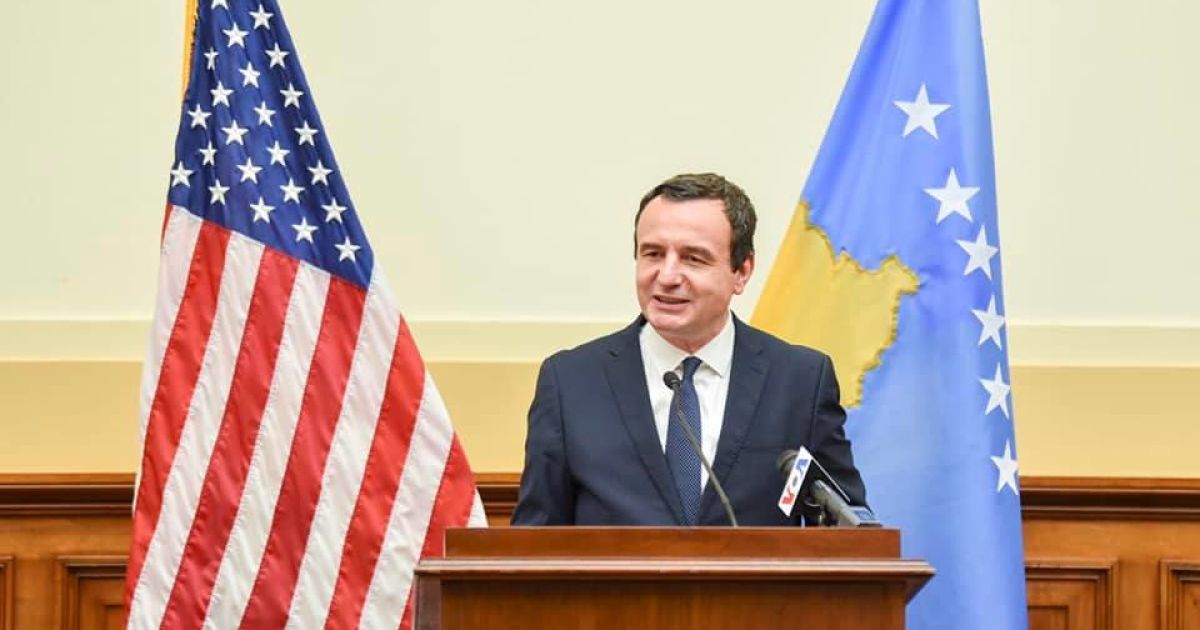Russia is fueling the conflict between the partially recognized state of Kosovo and Serbia over the failure of the war in Ukraine.
This was announced by the Prime Minister of Kosovo, Albin Kurti, The Guardian informs.
Context
Ethnic Serbs in northern Kosovo, where they form the majority, have erected barricades for more than a week, preventing Kosovo authorities from moving freely, despite calls from the US and the EU to dismantle the illegal roadblocks.
Serbian President Aleksandar Vučić exercised his right under the UN resolution to ask NATO for permission to send the Serbian police corps to Kosovska Mitrovica.
The paper said Serbia's request, the first since the end of the 1999 Kosovo war, is almost certain to be rejected, but there are concerns that it could be the first step towards a unilateral decision on Belgrade's aggression.
Position of Kosovo
Kurti said he was concerned that the tense situation could escalate in Putin's favor as Russian and Serbian forces held 104 joint military exercises in 2021.
"The EU and the US agree that the barricades should be removed. But they are also concerned about how this could be used by Belgrade," he said.
The prime minister suggested that the West is "concerned about Belgrade's ties with Moscow", but he does not know how Pristina's Western partners will react in the event of a conflict with Belgrade.
"Now that Russia has suffered serious defeats in Ukraine after its invasion and aggression, it is interested in outsourcing war-mongering in the Balkans, where they have a client based in Belgrade," Kurti said.
What is known about the conflict in Kosovo
The latest conflict between Kosovo and Serbia over car license plates has been going on for at least over a year.
The Kosovo authorities have decided that Serbian cars must install temporary Kosovo license plates.
Cars with Serbian number plates will be issued with a temporary certificate and RKS ("Republic of Kosovo") numbers.
The final implementation of this decision has already been postponed several times.
In August, Serbian President Oleksandr Vucic said that Serbia is ready to make concessions to the Kosovo authorities regarding the recognition of driver's licenses, but this does not mean recognition of the independence of these territories.
A new aggravation in the north of Kosovo was provoked by the arrest of an ex-policeman from the Serbian community.
He resigned from his post last month along with around 600 other ethnic Serbs in protest against Pristina's license plate decision.
In response to the arrest, the Kosovo Serbs began building barricades.
The Kosovo authorities introduced special forces into the Serb-populated region.
Belgrade, in its turn, brought the army into combat readiness.
On August 11, local Serbs and Kosovo police even exchanged shots.
It should be noted that the ethnic majority of Kosovo are Albanians, who make up more than 90% of the entire population.
At the same time, in the north of Kosovo, in the area of Kosovska Mitrovica, Serbs, who are the majority there, live compactly.
As a result of the 1999 war between Serbs and Albanians, Kosovo came under UN control.
In 2008, the region unilaterally declared independence, which is not recognized by many countries, including Ukraine.
Read also:
Kosovo is going to the EU: why Ukraine still takes an almost pro-Russian position regarding the partially recognized state
The government of Kosovo has officially submitted an application for joining the European Union
Ukrainians are asked to refrain from traveling to Serbia and Kosovo
Subscribe to our
Telegram
and
Viber
channels .
